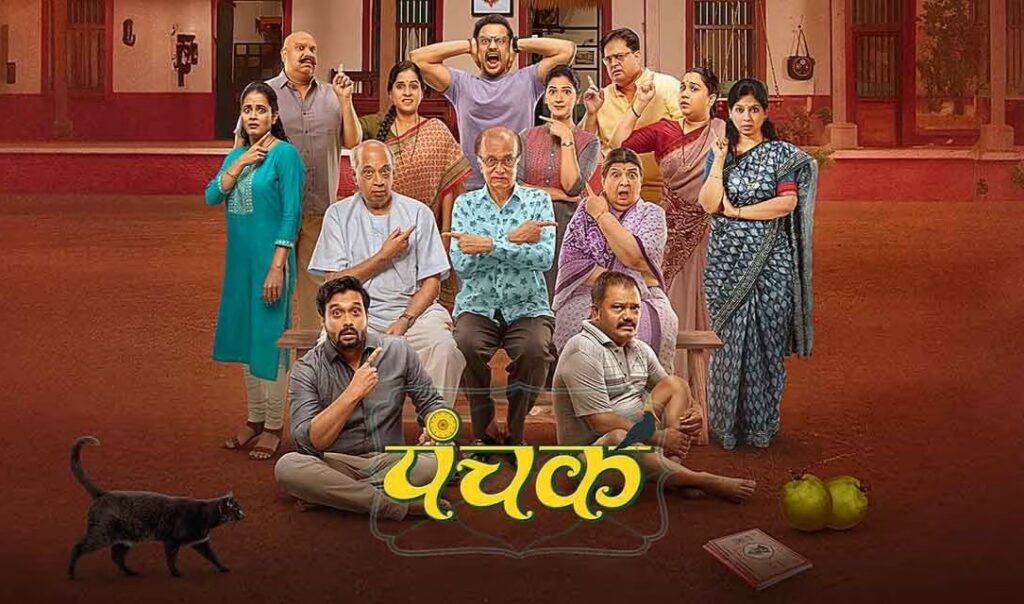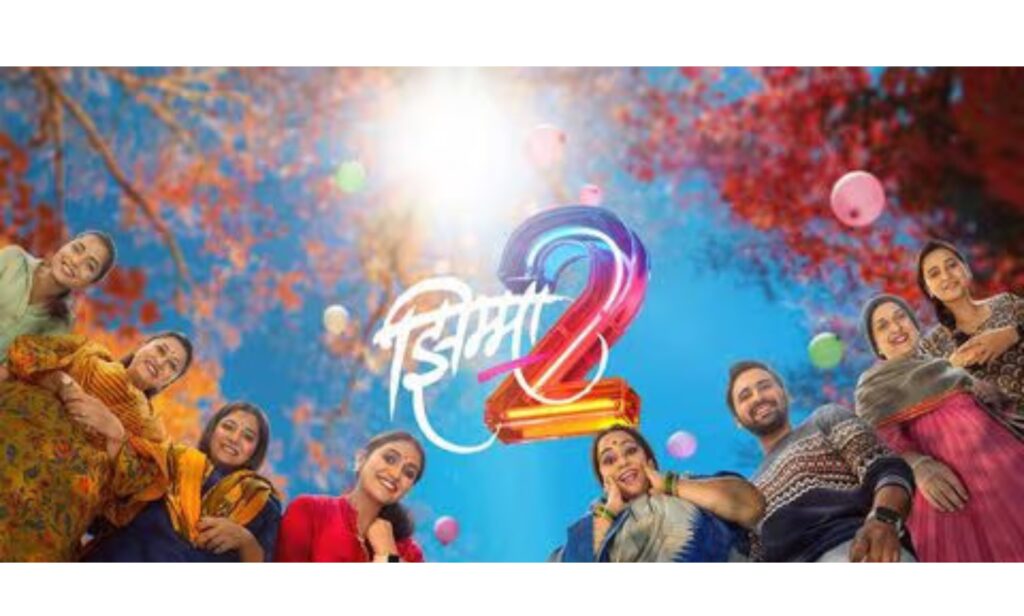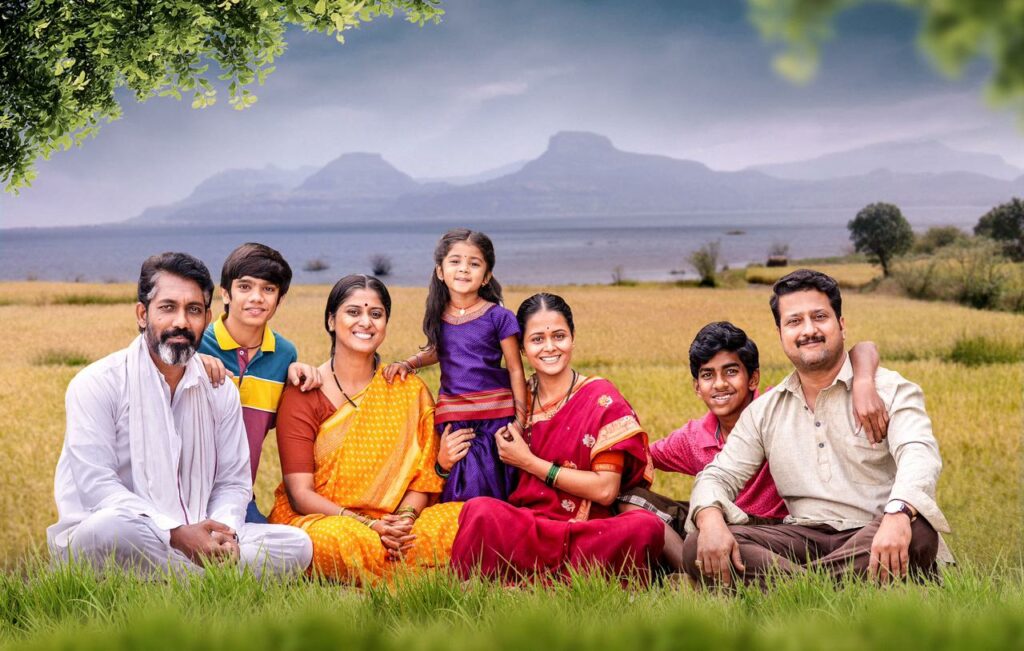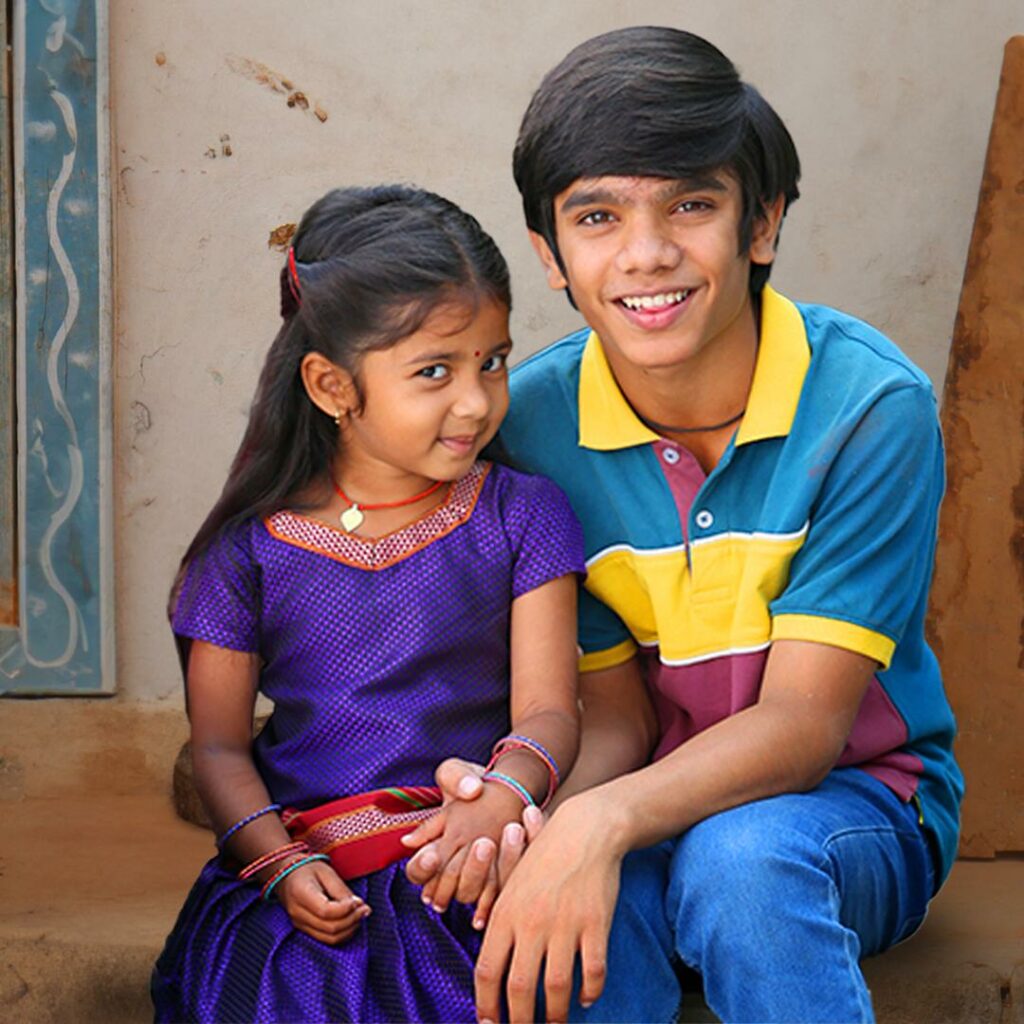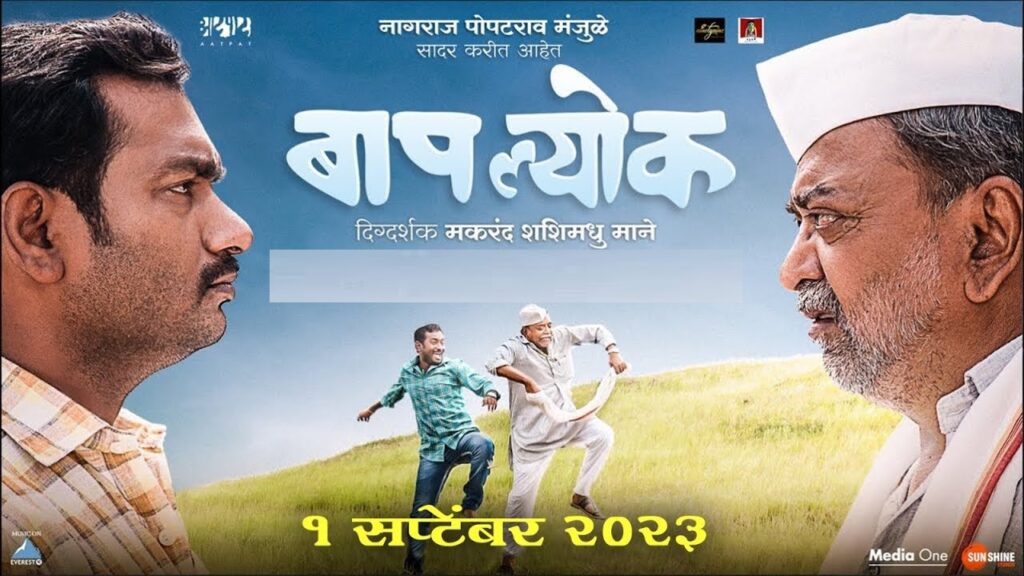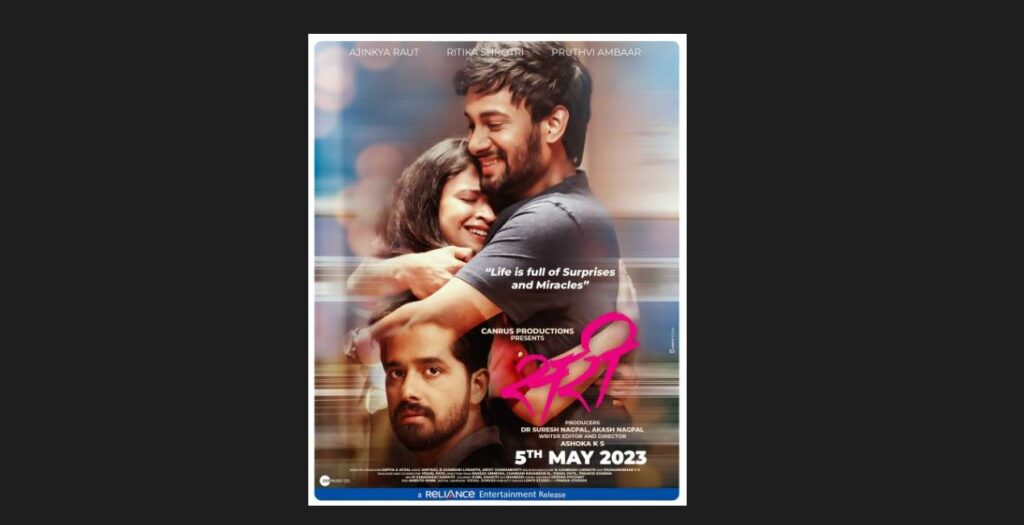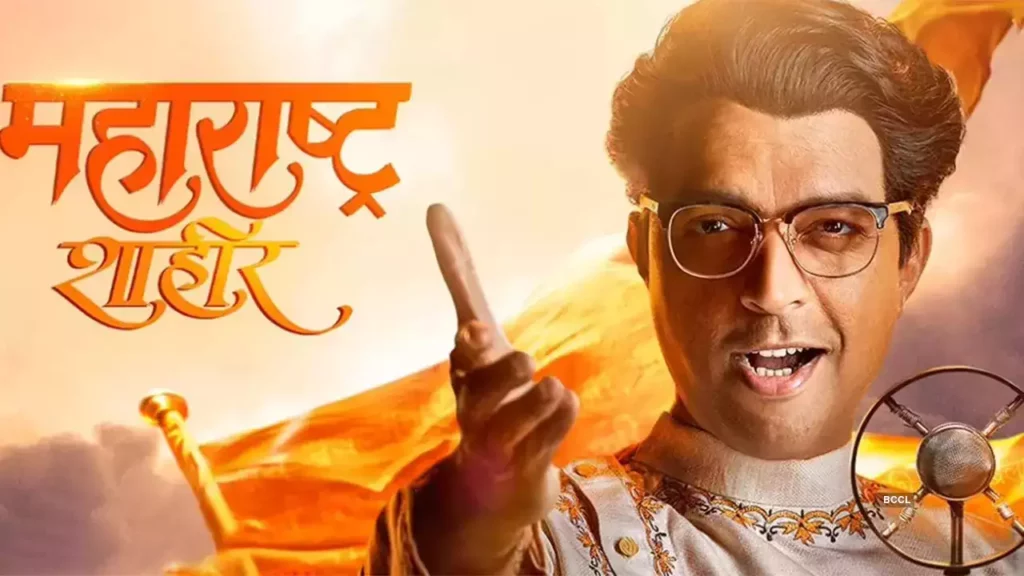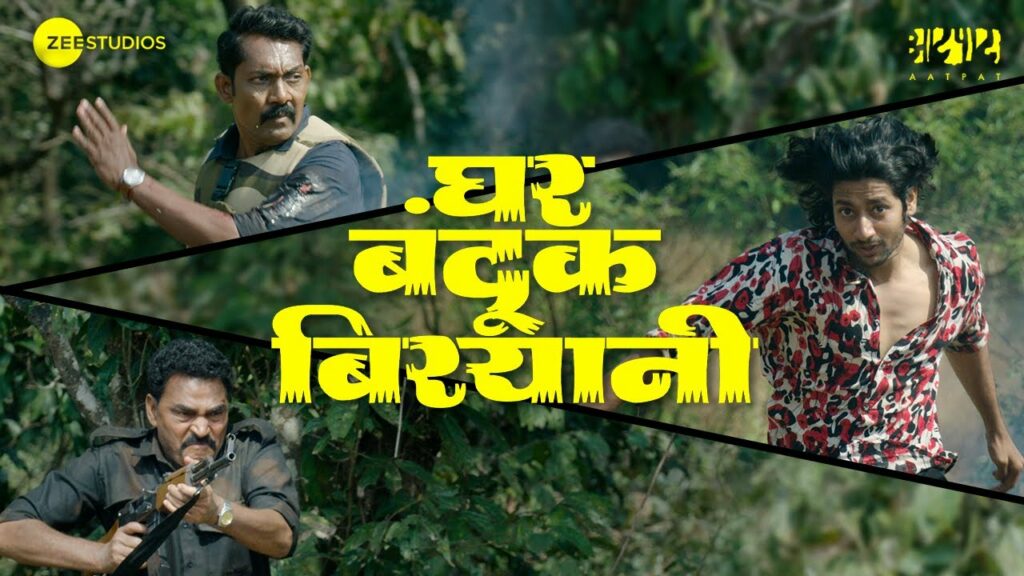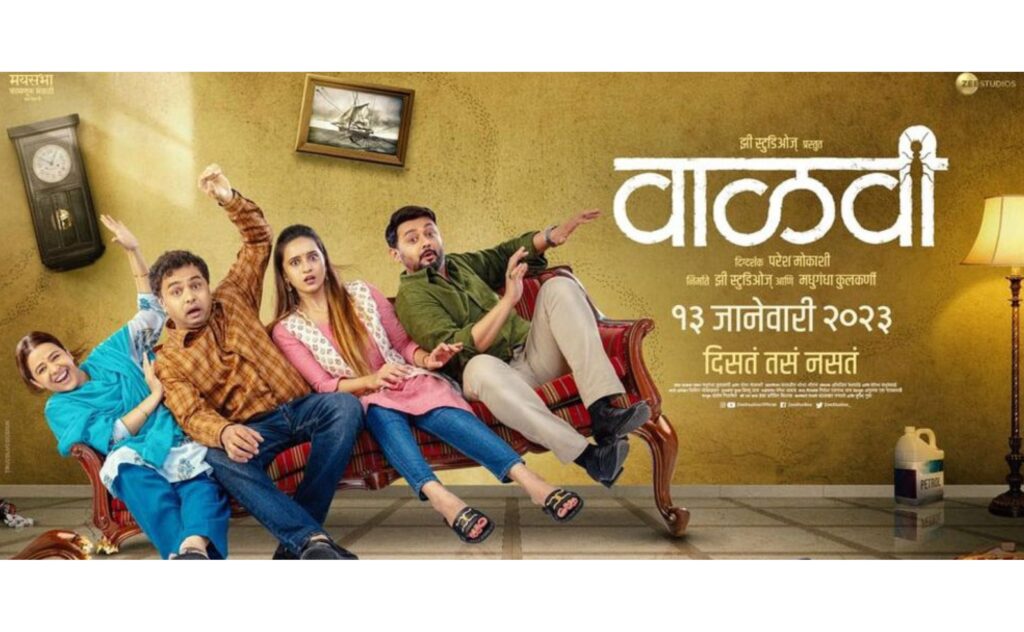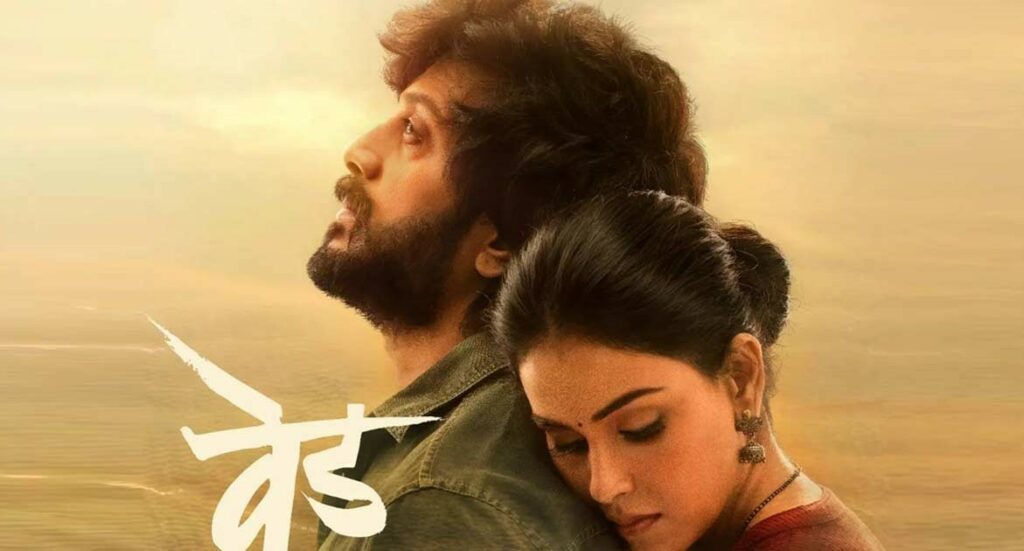Beliefs in different superstitions is a part and parcel of live all over India, including among the educated class. Superstitions often make way for comedy if looked at them from a distance. This tussle between superstitions and science is tackled by directors Rahul Awate and Jayant Jathar’s Marathi movie Panchak in a humorous way. The film is produced by Madhuri Dixit Nene and her husband Dr Shriram Nene.
Panckak is a belief where if a person from a family dies during a certain astrological time, it is followed by five more deaths within a year either from the same family or from people close to that family. The story takes place in the interiors of Konkan. Ananta Khot (Dilip Prabhavalkar) dies in his old age. The family’s priest Joshi (Vidyadhar Joshi) realizes that the man passed away during Panchak. Hence, the entire Khot family and their near and dear ones get scared as they feel five more deaths will follow in a year’s time.
However, Ananta’s son Madhav (Aditnath Kothare) finds this laughable since he is an atheist and a believer in science and rationality. He also works in the field of science. He faces the wrath from Joshi and the entire family (played by Satish Alekar, Bharti Achrekar, Anand Ingle, Nandita Patkar, Deepti Devi and Ganesh Mayekar) for his outlook but he is unperturbed. What actually happens till a year from that period forms the rest of the story. Madhav also shares a complicated romantic relationship with Revati (Tejashri Pradhan), who stays in the same village.
Panchak had the difficult task of creating a dark comedy out of someone’s death. The narrative and dialogues maintains the balance and ensure that nowhere does the proceedings become insensitive. The film also goes onto the extent of providing some rib-tickling and crazy humour all within the parameters of the subject. The confrontations between Madhav and his family members is funny in a natural away, even though it becomes slapstick at times.
Pankchak doesn’t have much of a story development. This isn’t felt much in the first half where the unfolding events keep you glued. But the same doesn’t happen in the second half where you start feeling that limited story material. Hence, more onus is given to gags and some incidents are stretched. The whole idea of hiding something from one character in the second half appears more like a ploy to keep the runtime over two hours, whereas it would have been fine if the film would have gotten over before that. The humour also appears a bit repetitive in the second half.
The finale, thankfully, is a nice and simple end to the debate and the story.
The performances fall in the positive. Adinath Kothare is thoroughly impressive as a firm but affectionate Madhav. He scores while portraying different moods of his character. Nandita Patkar gets more than noticed while playing an interesting character with perfection. Anand Ingle, Deepti Devi and the rest are also without fault. Veterans like Dilip Prabhavalkar and Bharti Achrekar leave an impact despite limited presence. Tejashri Pradhan is likeable in an extended cameo.
Like a number of previous Marathi films, the picturesque Konkan is explored richly here. Pooja S Gupte’s camerawork is impressive but at the same time quite simple and apt for the subject.
Overall: Panchak is worth watching for the humour and the ensemble cast.
Rating: 3 out of 5
Also read: Ole Aale (Marathi movie) Review: Nana Patekar starrer is a moving family drama
